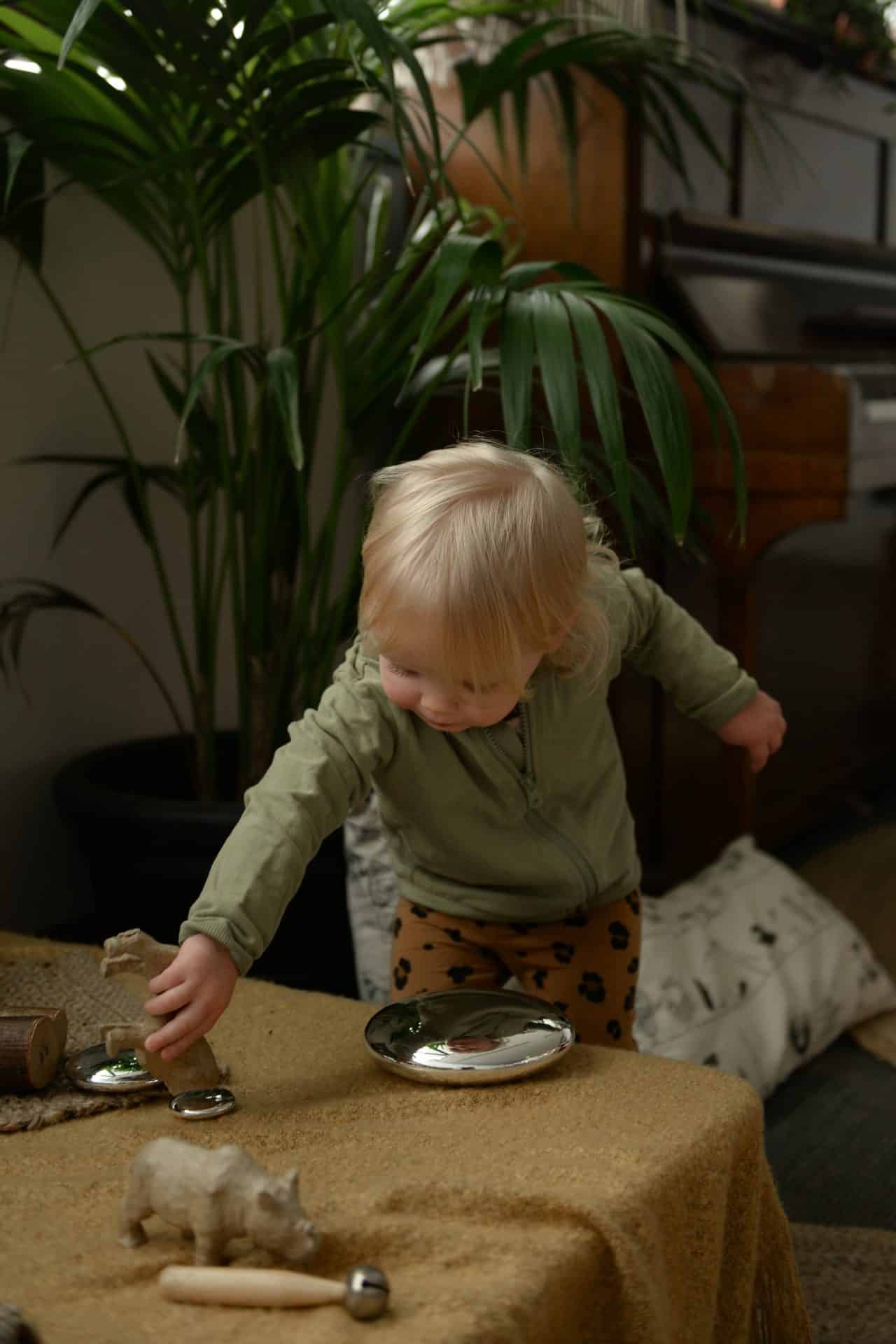
You’re probably familiar with the term, ‘Play-based learning’. But what does this actually mean in terms of early childhood development? To understand this, we need to delve a little deeper into how the human brain develops during the crucial first years of life.
At birth, the brain is around a quarter of its adult size. It grows fast, reaching about 90% of its full size at about five years of age. But it’s not just physical size – during this time trillions of neural connections are being made in response to stimuli and experiences.
This makes the first five years of life a vital window of opportunity for brain development – one that will have a lifelong impact on everything that the future adult has the potential to become.
Why Play-Based Learning Supports This Development
Children lay down the building blocks of essential skills during these early, brain-development years. This includes the base of their cognitive, social-emotional, language, problem-solving, critical thinking and self-regulatory abilities.
Play is, naturally, an enjoyable experience. As adults, we know that it’s far easier to learn by doing something that piques our interest, rather than dull, old-school methods that cause you to zone out. But the preschool brain has yet to form the connections that allow them to understand the concept of what learning means, be it boring or otherwise.
Enter early education play-based learning, a process that multiple studies show to provide the vital foundations that will lead to future knowledge. Rather than thinking of it as aiding the content of what a child learns, it’s better to think of it as supporting the actual learning process, something known as ‘executive function’. In other words, learning through play helps the child lay down the optimal psychological basis from which all other knowledge and understanding can grow.
In the Reggio Emilia classroom, play is not frivolous, even if it may sometimes appear that way to onlookers. The environment is designed to provide children with multiple opportunities to explore their curiosity. Play is generally an intrinsic process, coming from within and following a pathway that’s unique to each child. While this often results in collaboration with others, the curiosity that fires the journey of discovery is wholly individual.
Play supports a scaffold of learning skills, whereby new knowledge builds upon old. The formation of neural connections through joyful experiences follows a natural flow. For example, when you smile and coo at your baby, over the next days and weeks this leads to reciprocal facial expressions, sounds and gestures. These methods of communication continue to form and, before you know it, we’re into what Reggio Emilia calls ‘The 100 languages of children’, - the multiple methods of expression and communication that form one of the base principles of this world-renowned learning method.
Play-based learning in the Reggio Emilia environment is all about stimulating the young brain to build the neural connections that are vital for:
- Communication.
- Creativity.
- Critical thinking and problem-solving.
- Dexterity and fine motor skills.
- Empathy and social competency.
- Good physical and mental health.
- Self-regulating behaviours.
In addition to all the above, high levels of play are associated with low levels of stress hormones, such as cortisol. Furthermore, when children are given the opportunity to learn in a play-based environment in combination with a safe, nurturing atmosphere, is shown by multiple studies to indirectly affect the brain’s ability to regulate stress and improve resilience and coping skills.
And this is what we all want for our children – the start that provides them with the foundation to to be the very best person they can. Happy, capable, curious, kind… The neuroscience of play is a fascinating subject that forms the basis for the learning outcomes in the Early Years Learning Framework for Australia stem from.
At Evoke Early Learning, our curriculum follows the Reggio Emilia approach throughout our nursery, toddler and kindy levels – and we’d be delighted to talk to you more about the neuroscience of play that underlines our philosophy. If you’re interested in seeing our talented team in action and speaking to us about enrolling your child, the first step is to book a tour.
And, of course, you can always contact us for any other questions you might have.

Tracey is a highly qualified educator and administrator and brings a strong combination of academic achievement, extensive work experience in the education and business sectors as well as drive and passion to her role as General Manager of Operations at Evoke Early Learning.
Tracey has a Master of Education and an Advanced Diploma of Business and holds VIT Dual Registration to teach in Early Childhood and Primary School settings. She’s also a VIT Trained Mentor Teacher and has worked in ECEC settings as a Director, Educational Leader and as a Victorian Senior Area manager. Her recognition as a state finalist in the recent Director of the Year Awards is testament to her achievements in the early education sector.
Her extensive work experience also included a stint as Head of Curriculum at the Royal Children’s Hospital Education Institute and positions as head of ICT at a number of large primary and secondary schools. Tracey is also experienced in not-for-profit sessional kindergarten settings and long daycare environments, so she has a deep understanding of what’s required to support the needs and expectations of young children, educators, parents and caregivers.
Tracey is responsible for operational management at Evoke Early Learning’s Clayton centre in Oakleigh East and their Albert Park centre in South Melbourne and is deeply committed to leading and driving effective and sustainable service delivery throughout the company.
Tracey is passionate about making a meaningful difference to young children, their parents and the wider community and under her expert guidance, Evoke Early Learning is continuing to raise the bar in quality early education and childcare.


